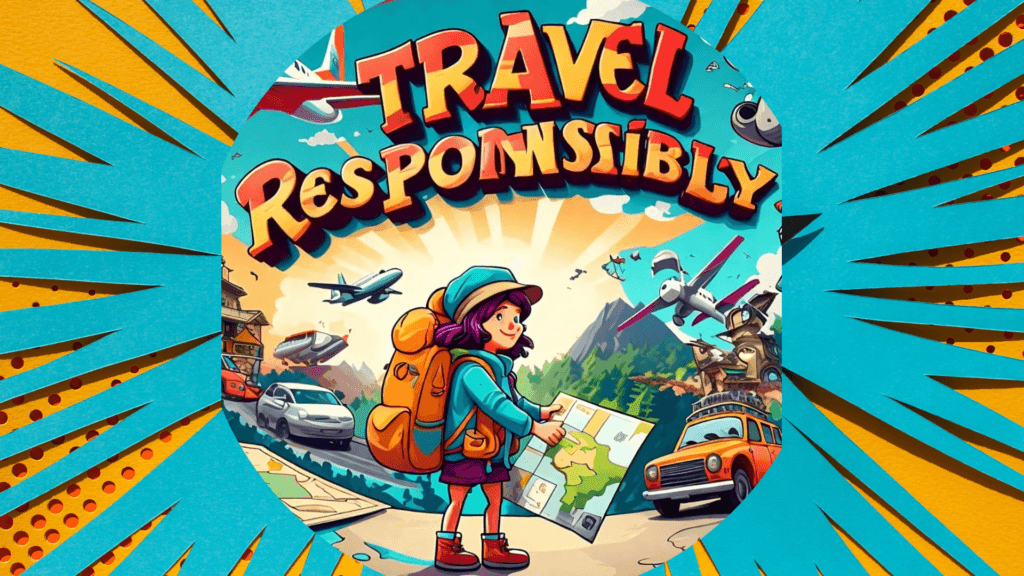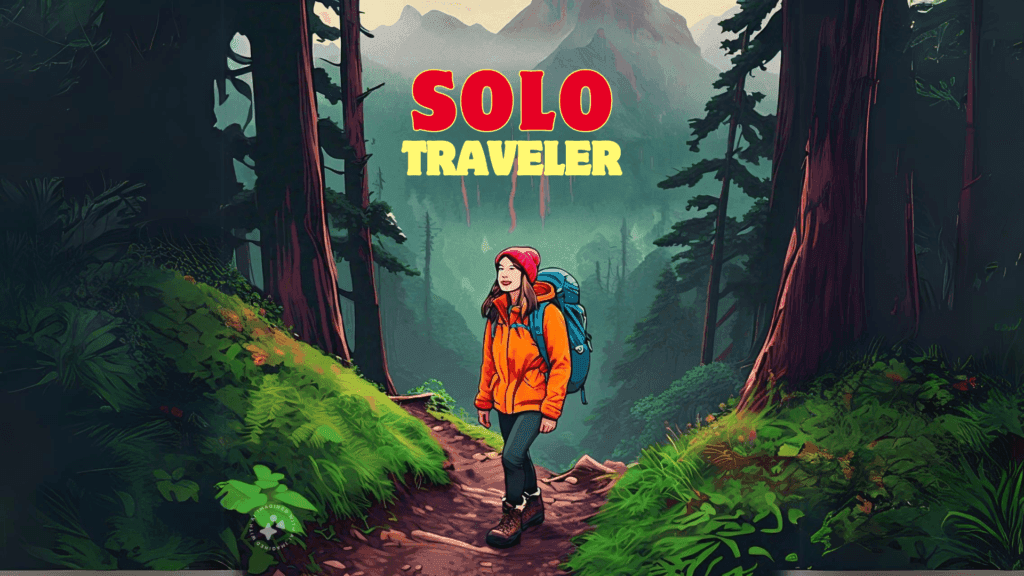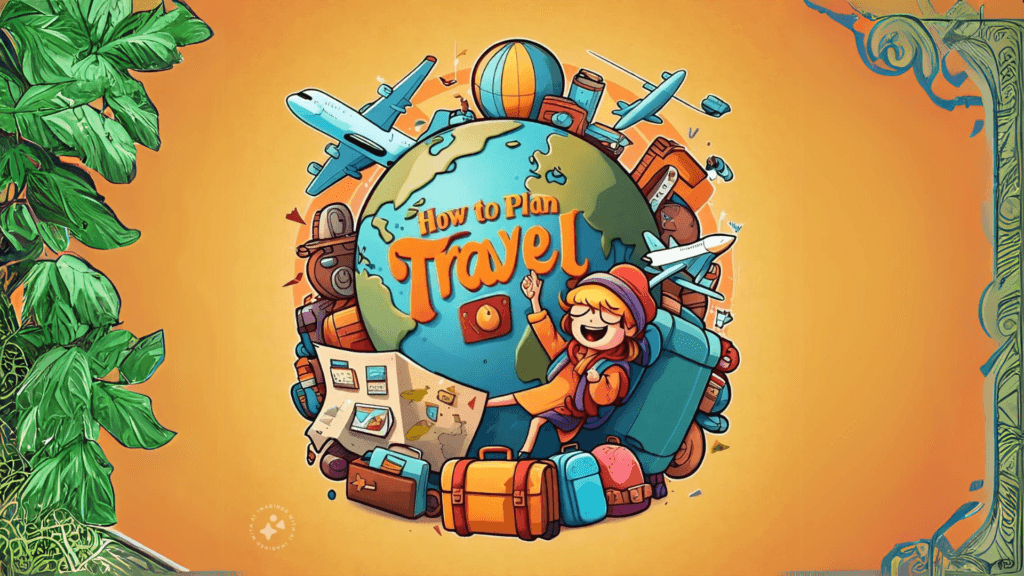Introduction
Whether you’re setting off on a wild backpacking adventure through Himachal, exploring the majestic temples of Tamil Nadu, or simply planning a weekend getaway to Goa, one thing is certain—safety first, fun second. Travel is supposed to be exciting, right? But let’s be honest, nobody enjoys getting scammed, falling sick, or dealing with emergencies in the middle of nowhere. If you want your adventure to be memorable for all the right reasons, a few smart precautions go a long way.
Here at Travelertree.in, we’ve crafted the ultimate survival guide for all you fearless Indian travelers. Think of this as your personal Man vs. Wild handbook—only with fewer bears and more advice on staying healthy, avoiding scams, and handling those “Uh-oh” moments. Let’s dive into the essentials, shall we?
Staying Healthy on the Road (Because Falling Sick is Not on the Itinerary)
You might think you’re invincible, but trust us—Delhi Belly has no mercy. Staying healthy while traveling is all about balancing adventure with smart choices (and maybe laying off that extra plate of spicy pani puri). Here’s how you can explore India without turning your trip into a visit to the local doctor.
1. Hydrate, Hydrate, Hydrate! (No, Not with Chai)
It’s easy to forget to drink enough water when you’re running around exploring forts, beaches, and hill stations. But dehydration is real, especially in India’s scorching summers. Carry a reusable water bottle and fill it up wherever you find safe drinking water.
- Pro Tip: Stick to bottled water if you’re unsure about local tap water quality. And if you’re trekking in remote areas, carry purification tablets—because you never know when that mountain stream is more “Instagram-worthy” than safe to drink.
2. Street Food: To Eat or Not to Eat?
We know street food is life, but be smart about it. Your taste buds might be craving that deep-fried samosa, but your stomach may have other plans. If it looks too greasy or unhygienic, give it a pass—there will always be another vendor.
- Jugaad Tip: Stick to busy food stalls with a high turnover of customers (fresher food, fewer risks). And make sure the food is piping hot—it’s less likely to cause an upset stomach.
3. Get Vaccinated Before You Go
From typhoid to Hepatitis A, there are several vaccines that Indian travelers should consider before heading off on longer or more remote expeditions. Check with your doctor and make sure you’re up to date.
- Pro Tip: Keep a small first-aid kit handy with essentials like painkillers, band-aids, ORS (Oral Rehydration Solution), and meds for upset stomachs—because there’s no pharmacy in the middle of a Ladakhi trek.
4. Hand Sanitizer: Your New Best Friend
Whether you’re petting cows in Varanasi or holding onto train handles, keep that hand sanitizer close. Indian streets are full of adventure… and germs.
- Fun Tip: Get yourself one of those handy keychain sanitizer bottles. You’ll look cool and stay safe!
Scam-Proofing Your Trip (A.K.A. Don’t Get Played!)
Let’s face it—tourists are prime targets for scams. And yes, even Indian travelers can fall prey to a crafty scam artist if we’re not careful. From overpriced taxis to fake guides, here’s how to avoid getting swindled while still enjoying the adventure.
1. Beware of the “Friendly Local” (Who’s Too Friendly)
If someone comes up to you out of the blue, offering unsolicited advice or trying to sell you something, proceed with caution. Sure, Indians are known for their hospitality, but sometimes that overly friendly stranger might just be trying to get a little too much out of your pocket.
- Common Scam: The “Let me show you a special shop” trick. This scam often leads you to overpriced stores where the friendly local earns a commission.
- Jugaad Defense: Politely decline with a firm “Nahin bhaiya, thank you” and stick to your plan.
2. Overpriced Taxis: The Classic Scam
You’ve just arrived at the train station, and the taxi drivers swarm you like flies on Mithai. Suddenly, you’re being quoted double or even triple the actual fare. Avoid the drama by always negotiating the fare in advance (if there’s no meter) or better yet, use apps like Ola or Uber.
- Pro Tip: If you’re unsure, ask locals or hotel staff what a reasonable fare should be. Having a rough idea will help you haggle like a pro.
3. “Temple Donations” and Other Guilt Trips
This one’s common near popular religious sites. A “priest” or local guide will offer to show you around or bless you, and at the end of the tour, you’re expected to cough up a donation—often an exorbitant one.
- Jugaad Tip: Decline politely if you don’t want the tour, or if you do, offer a reasonable donation, not the sky-high amount they suggest. Remember, most real temples don’t have mandatory donation fees.
4. Fake Guides and Tickets
You’re at the entrance of the Taj Mahal, and a smooth-talking “guide” approaches you, promising an “exclusive” tour. Little do you know, they may have just printed their own ticket at home.
- Pro Tip: Always buy tickets at official counters, and if you want a guide, book through reputable services (many sites have government-approved guides).
Emergency Handling Like a Pro (Or At Least Faking It)
Things don’t always go as planned—flights get delayed, wallets get lost, and you might end up in a situation that makes you feel like the lead in an action movie (minus the cool car chases). But don’t panic! Here’s how to handle travel emergencies without losing your cool.
1. Losing Your Wallet: The Ultimate Horror
Okay, deep breath. If you’ve lost your wallet, it’s not the end of the world (even though it feels like it). First, block your cards immediately—most banks have 24-hour helplines for this exact reason.
- Pro Tip: Keep a backup credit card or a small stash of emergency cash hidden in your luggage or in a separate bag.
- Jugaad Tip: Consider using a money belt or a secret pouch for your valuables while walking around crowded places.
2. Missed Flights and Trains: Don’t Cry (Too Much)
So, you overslept, missed your train, or got stuck in traffic on the way to the airport. It happens to the best of us. Don’t panic—head to the counter and explain the situation. Many airlines and train services will allow you to reschedule for a fee.
- Fun Tip: Think of it as an opportunity to explore the station or airport. You never know—you might discover a great bookshop or food stall!
3. Language Barriers: When “Namaste” Won’t Cut It
Traveling across different regions of India means encountering a plethora of languages. Don’t be embarrassed if you don’t know the local lingo—most people are happy to help if you approach them with a smile.
- Jugaad Tip: Learn a few key phrases in the local language before you go, or keep Google Translate handy for those trickier conversations. It’s a great icebreaker and shows that you’re making an effort.
4. Medical Emergencies: Know Where to Get Help
Whether it’s a bad case of food poisoning or a twisted ankle from that ambitious trek, knowing where the nearest hospital or clinic is can save you a lot of stress. Ask your accommodation for recommendations as soon as you arrive, and always carry travel insurance.
- Pro Tip: Register with the Indian Government’s e-MASIHA (for international travel) or carry the Arogya Setu app when traveling within India. It’s useful for emergency medical information and can connect you to nearby healthcare facilities.
Extra Safety Hacks for Smart Travelers
If you’re an Indian traveler ready to embark on your next big adventure, here are a few extra hacks to make your trip not just safer, but smoother, too.
1. Scan Important Documents
Before you leave, scan your passport, ID cards, tickets, and travel insurance and email them to yourself. It’s a lifesaver if your physical documents get lost or stolen.
2. Know Your Emergency Numbers
India has a universal emergency number—112. But depending on the state or region, local numbers for the police or ambulance services might vary. Make sure you know the key numbers for the region you’re visiting.
3. Download Offline Maps
As much as we rely on data, there are still parts of India where you’ll lose network coverage. Download offline maps from Google Maps before heading into remote areas.
Conclusion: Safety Isn’t Boring—It’s Smart!
So there you have it, fellow travelers—a comprehensive, creative, and hopefully amusing guide to staying safe while adventuring across India. Whether you’re haggling with taxi drivers, navigating the treacherous world of street food, or handling a lost wallet, remember that travel is as much about being smart as it is about being adventurous.
At Travelertree.in, we believe that the best adventures are the ones where you return home with great stories—not horror tales. So stay safe, travel smart, and most importantly, enjoy every moment!



